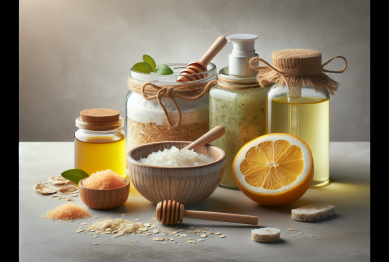In the age of viral trends and TikTok health advice, it’s easier than ever to get confused about what’s true and what’s simply hype. From “carbs are bad” to “you must detox to stay healthy,” nutrition myths spread fast—and often stick around far longer than they should. Fortunately, scientific research offers a clearer picture.

Myth 1: Carbs Make You Fat
Carbohydrates have been labeled the enemy in countless fad diets, especially during the height of the low-carb craze. But the science doesn’t support the idea that carbs alone are responsible for weight gain.
- What science says: Weight gain occurs when you consume more calories than your body uses, regardless of whether they come from carbs, fat, or protein.
- According to a meta-analysis published in The Lancet, people who consumed higher-quality carbohydrates (like whole grains and vegetables) had a lower risk of chronic disease and obesity.
It’s the type of carbs that matters—not carbs themselves. Whole grains, fruits, and legumes are beneficial, while processed sugars and refined carbs are less so.
Myth 2: You Need to Detox Regularly
Detox teas, cleanses, and juice fasts promise to flush out “toxins” from your body. But here’s the truth: your body already has a detox system—and it works just fine.
- What science says: The liver and kidneys handle detoxification 24/7. There is no credible evidence that commercial detox products speed up or enhance this process.
- As the National Center for Complementary and Integrative Health (NCCIH) notes, “there isn’t any convincing evidence that detox or cleansing programs actually remove toxins from your body or improve your health.”
Instead of detoxing, a better approach is to consistently support your liver and kidneys by eating a balanced diet and staying hydrated.
Myth 3: Fat Is Always Bad for You
For years, dietary fat was blamed for heart disease and obesity. Many people still associate the word “fat” with something negative. But not all fats are created equal.
- What science says: Healthy fats—like those found in avocados, nuts, seeds, and olive oil—are essential for hormone production, brain function, and absorbing fat-soluble vitamins.
- A study published in the American Journal of Clinical Nutrition found that higher intake of healthy fats is associated with a lower risk of cardiovascular disease.
The fats to limit are trans fats and excessive saturated fats, often found in processed foods. Healthy fats can and should be part of a balanced diet.
Myth 4: You Must Eat Every 2–3 Hours to Boost Metabolism
Frequent small meals are often recommended to “keep your metabolism high.” While this approach works for some, it’s not necessary for everyone—and doesn’t have the metabolic effect often claimed.
- What science says: Meal frequency has little impact on metabolic rate. A review in the British Journal of Nutrition found no significant benefit of eating more often for weight loss.
- What matters most is total daily caloric intake and quality of food, not how often you eat.
Some people do well on three meals a day; others thrive with intermittent fasting. The best schedule is one that’s sustainable for you.
Myth 5: Organic Food Is Always Healthier
Organic food is often seen as more nutritious or safer than conventional options. While it’s true that organic farming avoids certain synthetic pesticides, the nutritional content is not vastly different.
- What science says: A systematic review published in Annals of Internal Medicine found that organic foods are not significantly more nutritious than conventional ones.
- However, they may have lower pesticide residues, which is a valid reason to choose them—especially for produce with thin skins like strawberries or spinach.
Eating more fruits and vegetables—organic or not—is far more important than focusing on whether they’re certified organic.
Myth 6: High-Protein Diets Are Dangerous
Some people worry that eating too much protein can harm the kidneys or lead to other health problems. This concern is often exaggerated.
- What science says: For healthy individuals, high-protein diets are generally safe. Kidney issues typically arise in people with pre-existing kidney disease.
- Research from the International Society of Sports Nutrition supports that high-protein diets do not adversely affect kidney function in healthy people.
Protein is essential for muscle repair, immune function, and satiety. The key is to get it from diverse, high-quality sources—like eggs, fish, legumes, and lean meats.
Myth 7: Natural Sugar Is Better Than Processed Sugar
“Natural” sugars like honey, agave syrup, or coconut sugar are often marketed as healthier than white sugar. But your body processes all sugars similarly.
- What science says: Whether it’s table sugar or agave syrup, all added sugars contribute calories and spike blood glucose. The American Heart Association recommends limiting total added sugar intake, regardless of the source (AHA Guidelines).
The healthiest sugars are those naturally occurring in whole foods—like fruit—because they come with fiber, water, and nutrients that slow absorption.
Final Thoughts
Nutrition doesn’t need to be confusing—but misinformation is everywhere. The next time you hear a bold claim about a miracle food or a scary warning about a common ingredient, take a step back and ask: What does the science actually say?
Staying informed means questioning assumptions and relying on credible sources. Your health is too important to be guided by myths.
References:
- The Lancet – Carbohydrate Quality and Health
- National Center for Complementary and Integrative Health – Detoxes
- American Journal of Clinical Nutrition – Fat Intake and Health
- British Journal of Nutrition – Meal Frequency Meta-analysis
- Annals of Internal Medicine – Organic vs. Conventional Food
- Journal of the International Society of Sports Nutrition
- American Heart Association – Sugar Intake Recommendations









